Microneedling
Revitalize Your Skin with Microneedling
What is Microneedling?
Microneedling is a minimally invasive cosmetic procedure that involves the use of a device with fine needles to create tiny, controlled punctures in the skin's surface. This process stimulates the body's natural production of collagen and elastin, promoting skin rejuvenation and improving texture and firmness. Microneedling is effective for treating various skin concerns, including fine lines, wrinkles, scars, and uneven skin tone.The controlled micro-injuries created by microneedling trigger the skin's repair process, resulting in the production of new collagen and elastin. This leads to:
- Reduction in fine lines and wrinkles
- Improved skin texture and firmness
- Diminished appearance of scars and acne scars
- More even skin tone and reduction of hyperpigmentation
- Enhanced overall skin vitality and radiance
Microneedling Examples
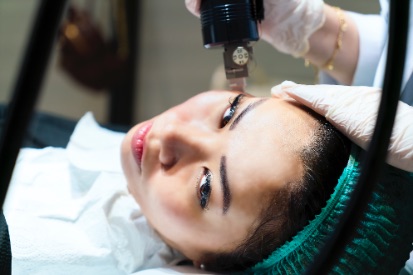
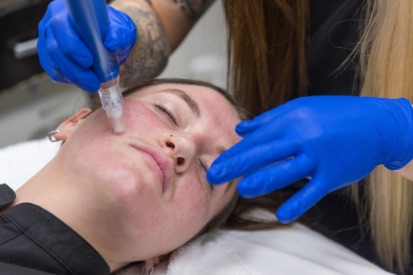
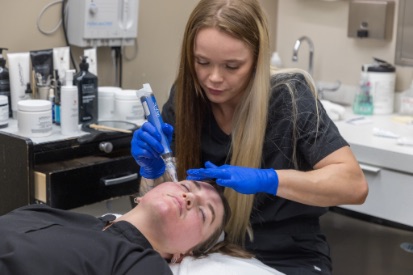
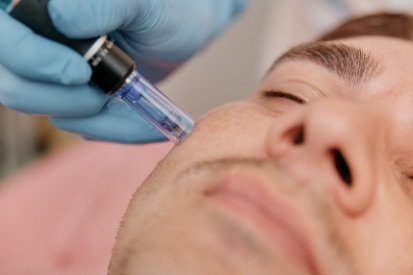
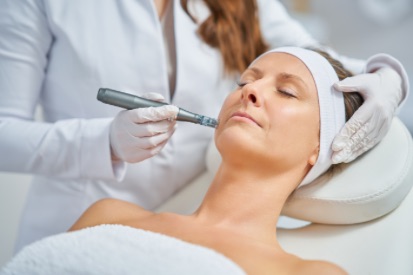
Benefits of Microneedling
- Collagen Boost: Stimulates the production of collagen for improved skin elasticity.
- Fine Line Reduction: Reduces the appearance of fine lines and wrinkles.
- Scar Improvement: Helps diminish the visibility of scars, including acne scars.
- Even Skin Tone: Addresses hyperpigmentation and enhances overall skin tone.
- Minimally Invasive: Non-surgical procedure with minimal downtime.
- Improves Texture: Enhances the texture and smoothness of the skin.
- Youthful Radiance: Promotes a youthful and rejuvenated appearance.
- Customizable: Can be tailored to target specific skin concerns.
- Safe and Effective: Well-established as a safe and effective skincare treatment.
Common Side Effects of Microneedling
- Temporary redness post-treatment.
- Mild swelling, typically subsides quickly.
- Occasional bruising.
- Temporary dryness and peeling.
- Increased sensitivity to sun and skincare products.
- Rare occurrence of minimal bleeding at needle entry points.
- Temporary flushing of the skin.
- Mild tingling or prickling sensation during and after the procedure.
- Very rare risk of infection, if post-care instructions are not followed.
What to Expect at Your Microneedling Appointment
Following the treatment, your dermatology provider may apply soothing serums or moisturizers to aid in the healing process.
Microneedling Maintenance Recommendations
- Gentle Cleansing: Use a mild cleanser to cleanse the treated area without harsh scrubbing.
- Sun Protection: Apply broad-spectrum sunscreen regularly to shield the skin from UV damage, especially in the days following microneedling.
- Avoid Harsh Products: Refrain from using abrasive skincare products or treatments that may irritate the freshly treated skin.
- Regular Moisturizing: Keep the skin hydrated by applying a gentle, non-comedogenic moisturizer regularly.
- Communication: Stay in close communication with your dermatology provider, reporting any changes or concerns promptly to facilitate adjustments to the maintenance plan as needed.
Microneedling Maintenance Schedule
- Typically, an initial series of 3-6 sessions, spaced 4-6 weeks apart, is recommended for optimal results.
- After the initial series, maintenance sessions may be scheduled every 2-3 months to sustain the benefits.
- Regular consultations with your dermatology provider help assess the ongoing condition of your skin and determine the need for additional sessions.
- Microneedling may be complemented with other skincare treatments as part of a comprehensive plan to address specific concerns over time.
Microneedling FAQs
A topical numbing cream is applied before the procedure to minimize discomfort. Most individuals experience mild sensations, likened to a slight tingling or prickling.
Optimal results often require an initial series of 3-6 sessions, spaced 4-6 weeks apart. Maintenance sessions may be recommended afterward.
Yes, microneedling is generally considered a safe and well-tolerated cosmetic procedure when performed by a trained and qualified dermatology provider. The procedure involves creating controlled micro-injuries using fine needles, stimulating the skin's natural healing processes and collagen production. While mild side effects such as redness, swelling, and temporary discomfort are common, serious complications are rare when post-treatment care instructions are followed. It's essential to consult with a dermatology provider to determine if microneedling is suitable for your skin type and concerns.
Microneedling stimulates collagen with tiny needles for deeper skin renewal, targeting fine lines. Microdermabrasion exfoliates the surface for smoother skin and addresses superficial concerns. Choose microneedling for a deeper rejuvenation or microdermabrasion for surface refinement, based on your specific skincare goals. Consult with your skincare professional for personalized recommendations.
Microneedling is a versatile cosmetic procedure known for stimulating collagen production, making it beneficial for reducing fine lines, wrinkles, and scars, including those from acne or surgery. This treatment also improves overall skin texture, minimizing pore size and promoting a smoother complexion. Microneedling's ability to enhance the absorption of topical products contributes to its effectiveness in skincare routines. With minimal downtime and suitability for various skin types, microneedling has become a popular choice for individuals seeking a non-invasive yet effective solution for skin rejuvenation and improvement. Consulting with a skincare professional can help determine if microneedling aligns with your specific aesthetic goals and skin concerns.
From Our QualDerm Family of Brands: What is Microneedling?
How The Dermatology & Skin Surgery Center of Wilmington Can Help
Our team is dedicated to providing personalized care, helping you achieve the radiant and youthful-looking skin you desire. Experience the transformative effects of microneedling at The Dermatology & Skin Surgery Center of Wilmington, where your skin health is our top priority.
Featured Blogs

- Botox
- Injectables or Fillers
- Cosmetic Treatments
If you have skin concerns you’re eager to address or are just looking for cosmetic treatments to restore healthy skin, the experienced dermatologists at The Dermatology & Skin Surgery Center of Wilmington are here to help with professional cosmetic treatments and nonsurgical procedures in Wilmington, North Carolina.
Read More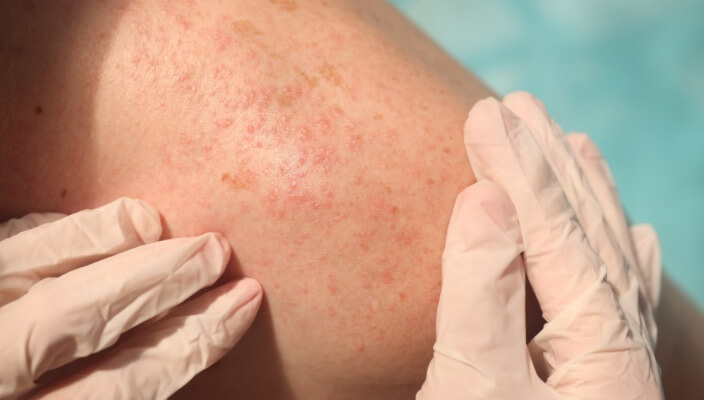
- General Dermatology
- Chronic Skin Conditions
At The Dermatology & Skin Surgery Center of Wilmington, we understand how hard it can be to distinguish eczema and psoriasis from one another.
Read More
- Skin Cancer
- General Dermatology
- Chronic Skin Conditions
Learn more about the most common types of skin lesions we see at Westerville Dermatology and how our dermatologists remove them.
Read MoreFeatured Products
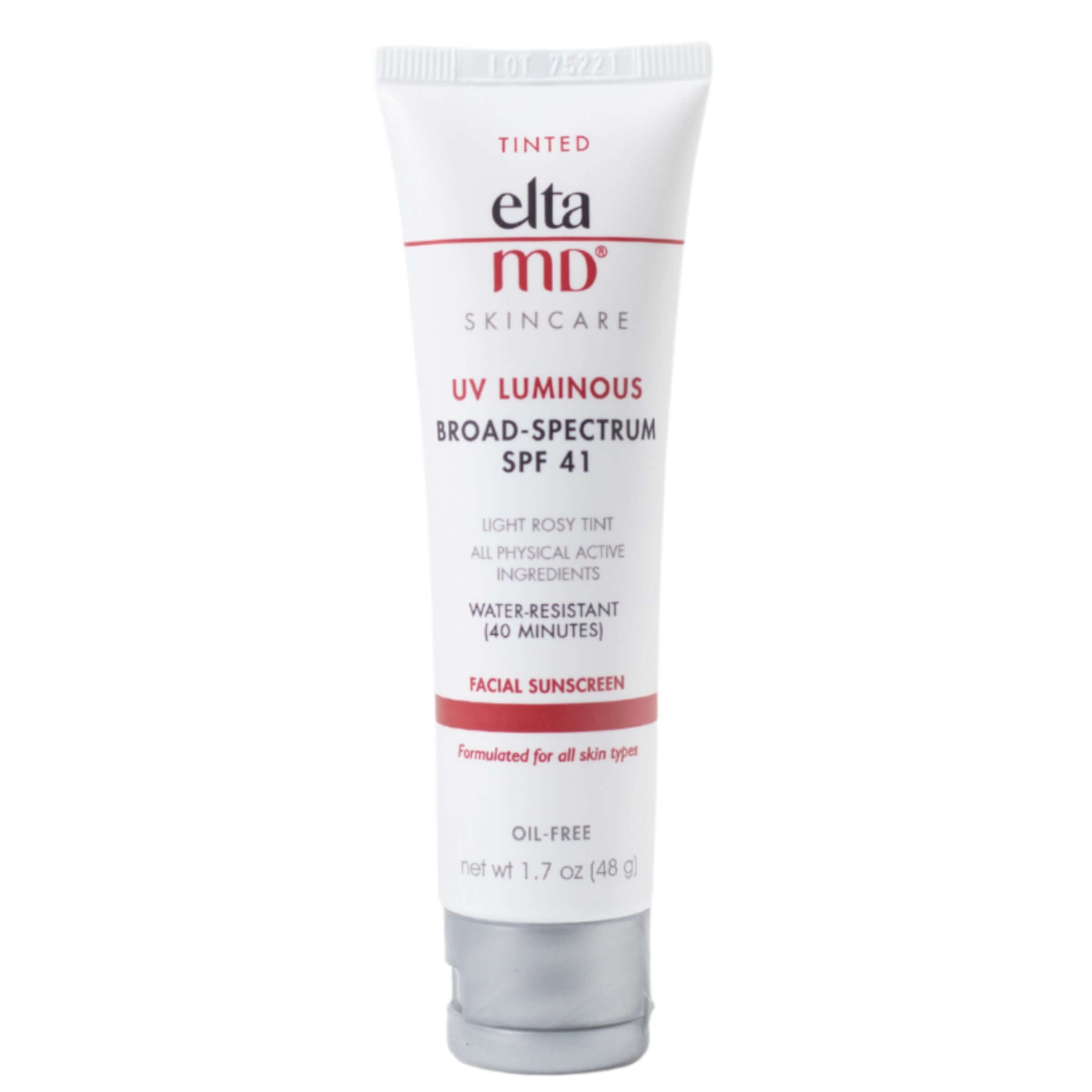
EltaMD UV Luminous Broad-Spectrum SPF 41
Get a shade more luminous with our newest lightly tinted sunscreen that brings skin care and essential sun care together. EltaMD UV Luminous Broad-Spectrum SPF 41 uses antioxidants such as linoleic acid and vitamin E to protect your skin from free radicals and diminish UV-related signs of aging. It’s light rosy tint and semi-matte finish blends into the skin seamlessly and blurs imperfections. EltaMD UV Luminous Broad-Spectrum SPF 41 sunscreen is ideal for those seeking non-greasy UV protection with all physical active ingredients. Net wt 1.7 oz/48 g
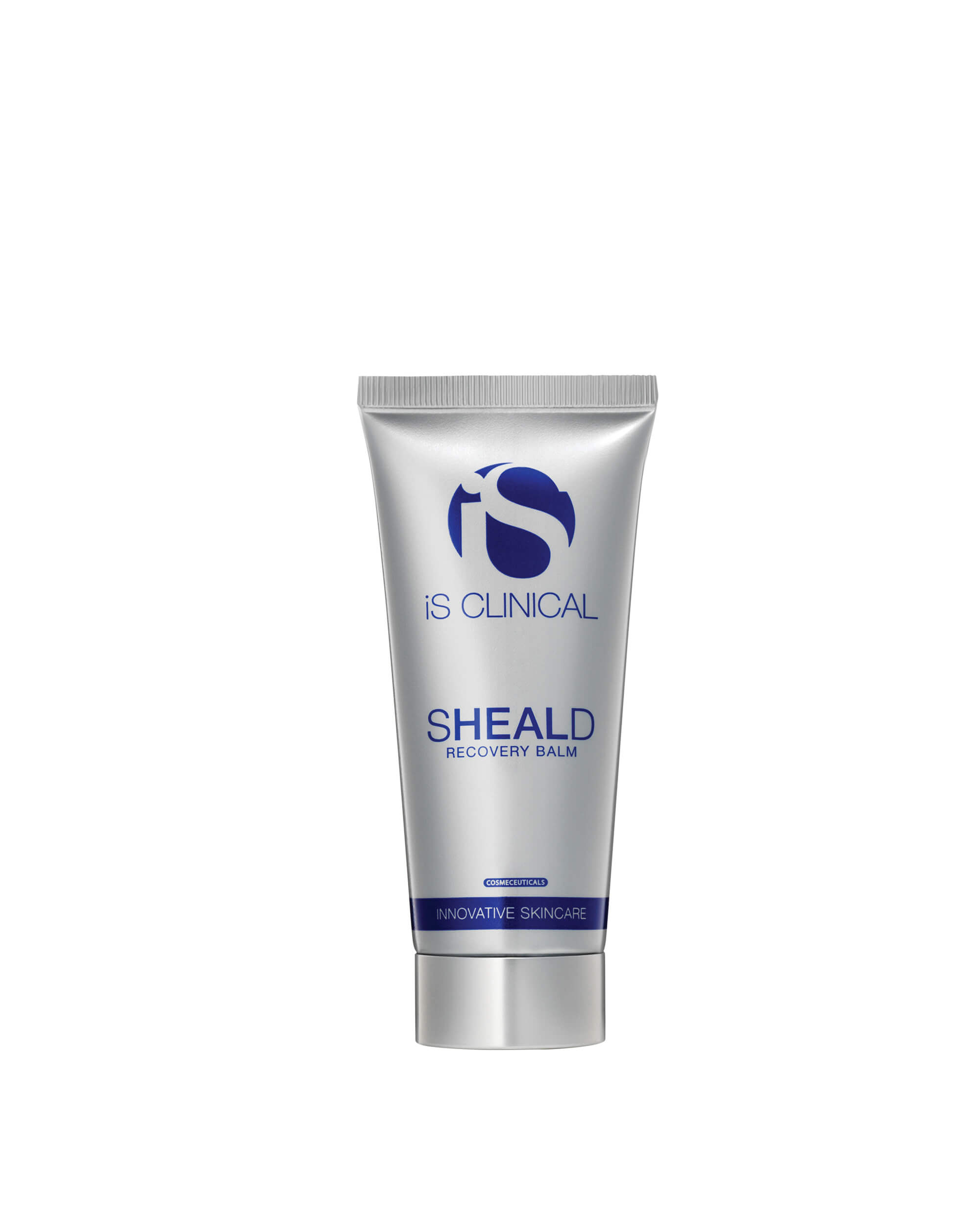
iS Clinical Sheald Recovery Balm
SHEALD Recovery Balm is a moisture-rich formula that dramatically replenishes hydration to dry, sensitive, or compromised skin. This fortifying remedy works overtime to help support the skin’s function while soothing, curative botanicals relieve discomfort of dry, distressed, and post-procedure skin. Clinically proven to provide environmental protection. 60 g e Net wt. 2 oz.
